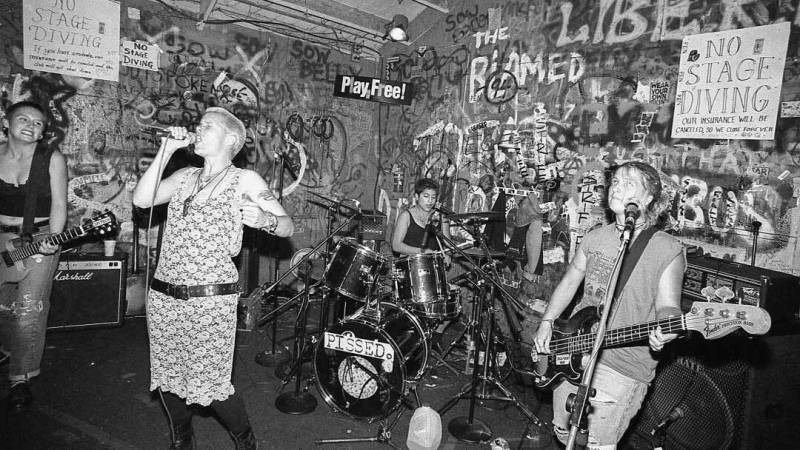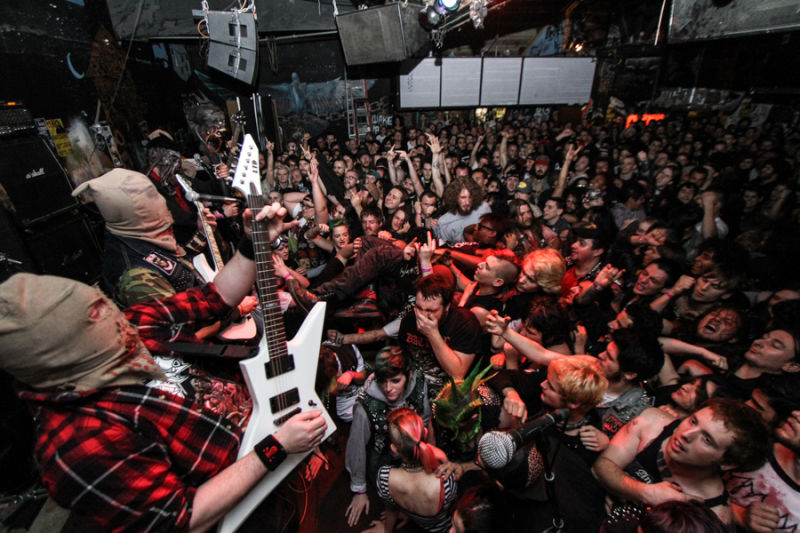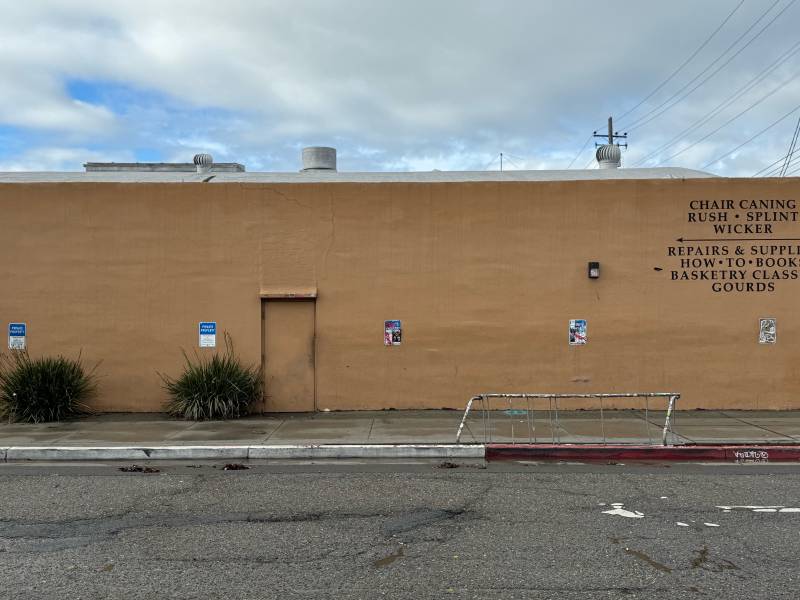“No racism, no sexism, no homophobia, no transphobia, no alcohol, no drugs, no fighting, no stagediving,” reads the list of rules that greets visitors to Berkeley’s 924 Gilman. Those rules are central to the ethos of the venue — a widely beloved, all-ages, volunteer-run punk club that birthed Green Day, Operation Ivy, Rancid and so many other East Bay bands since it first opened in 1986. But there’s never been a rule against taking home a chunk of the wall.
Wanna Own a Piece of a World-Famous Punk Club?

Good thing, because that’s exactly what 200 punk fans will be doing sometime in early 2024, as a reward for contributing to a fundraiser launched this week. The Kickstarter aims to raise $20,000 to fund the replacement of 924 Gilman’s existing side door with new doors that will nearly double the club’s capacity, as well as help make the venue more accessible.
It’s a project nearly 15 years in the making, says musician and longtime Gilman volunteer Alex Botkin — but the financial strain of the pandemic made the upgrade more urgent.

“After coming back from being closed during COVID, we’ve seen a growing increase in costs just to keep the venue running,” says Botkin, noting that Gilman volunteers have been working with the City of Berkeley for the past seven months to get the proper permits in place. “We’ve always tried to operate within legal capacity, which has been 225, and for much larger shows that’s really difficult to accommodate. This will help with getting as many people in as possible.” The Berkeley Fire Department will determine the club’s new capacity following the renovation, but volunteers expect the new number to be 500 to 550.
In coming up with rewards for donors, Botkin says volunteers were looking for something “authentically Gilman, that no one could misconstrue as corporate or sellout-ish.” They landed on “wall chunks.” Following the renovation, supporters who donated $100 will receive a four- to five-inch piece of the heavily illustrated and tagged interior wall that currently surrounds the existing door, along with a certificate of authenticity signed by a Gilman volunteer.
“People come by Gilman from far-away places just to see a little bit of East Bay punk history, and they always talk about how amazing the actual building is,” says Botkin. “So this is giving people a chance to have a small piece of it in their home.”
“Also it’s just funny,” he acknowledges. “Like, can we sell people rubble?”
Comedic value aside, the fundraiser speaks to the tenuous nature of Gilman’s existence in the year 2023. Known worldwide by punk fans, celebrated by legendary rock bands and even feted by the City of Berkeley itself — something that would have been unimaginable 30 years ago — the club still teeters on the brink of unsustainability. As a DIY space in a fully gentrified Berkeley neighborhood, it relies on new generations of young people discovering it, putting in hours of unpaid work on it, tending to both its legacy and its day-to-day functions.
There’s always nostalgia involved when it comes to Gilman, says Botkin. But upgrades like these are about “the reality of keeping the place running.”

As for the existing side door — the site of countless punk dramas, romances and smoke breaks over the past four decades — it will do what so many industry veterans do when they retire: head to Vegas. Following removal, its new home will be at the Punk Rock Museum, opened by NOFX’s Fat Mike there earlier this year.
Plotkin isn’t sure exactly what that exhibition will look like. But “our pitch was that it should be interactive,” he says. “See what it feels like to get kicked out of Gilman.”

